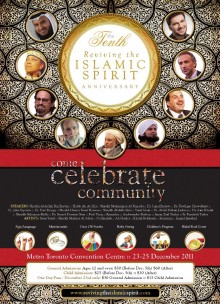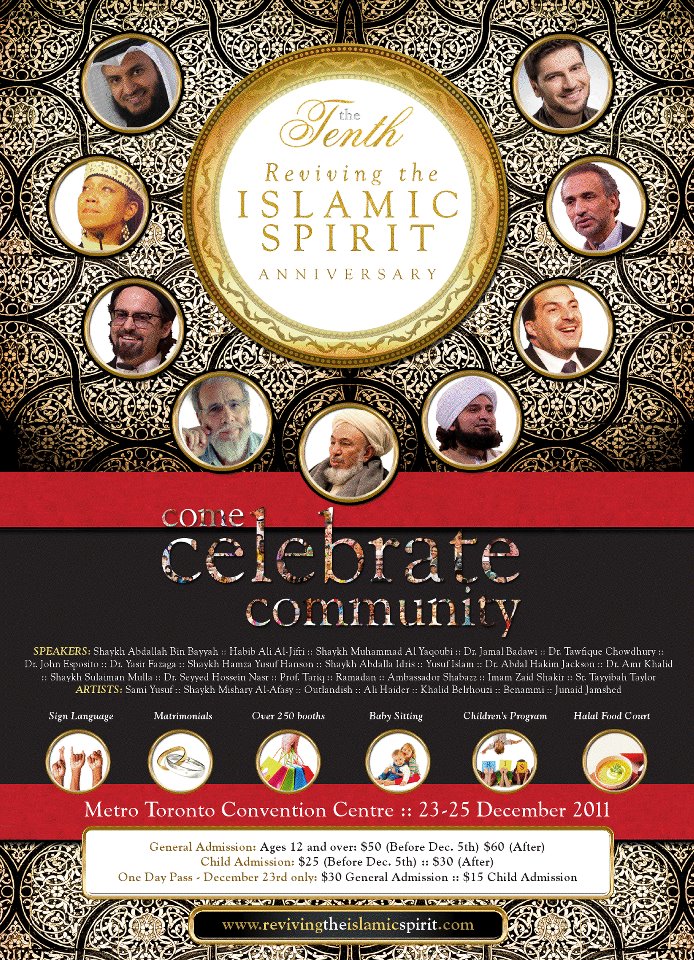
Humans have always been social creatures and in need of friends and companions. Much of our lives is spent in interaction with others. For us Muslims who are living in a society where we are clearly a minority, the issue of choosing the right companions is essential for preserving our Deen. Befriending righteous and virtuous Muslims is an essential means for staying on the Straight Path. Strong individuals, on the other hand, are the core of a strong community, something that Muslims should always strive for.
We all know that we were created for a specific purpose and that Allah the Most High has given us life in order to test us. None of us will deny that we are here for a relatively short period of time and that we shall meet Allah (swt) one Day. Once we know our purpose and our goal, we should seek ways to achieve them so as to benefit our own selves. All of us believe that Allah has sent us a Messenger (saws) and revealed to us the Qur’an, the Best Speech.
In an authentic Hadith, the Prophet Muhammad (saws) said:
“A person is likely to follow the faith of his friend, so look whom you befriend.” (1).
The person most noble in character and dealings with fellow humans gave us a very clear message and advice in regard to friendship. We should choose the friend that is satisfied with our Deen and avoid the friend that is displeased with it. Whoever we see and are pleased with his Deen, we should befriend him and whoever we are displeased with his Deen and his manners, we ought to avoid him. There is no good in the companion who does not wish for us (from good) what he wishes for himself. There is also no good in the companion who wishes for us what he wishes for himself, if what he likes for his own soul is leading him towards destruction and Hellfire.
The bases for the actions of those who follow the evil ways are corrupt; their actions are built upon misguidance and deviation. Their deeds are worthless to them as Allah (swt) said:
“And We will proceed to what they have done of deeds, so We shall render them to scattered floating dust.” Qur’an 25:23
Their actions, even if we regard them as righteous and noble are of no value to them, so how can they be of benefit to us? Friends are those who feel for their companions, in both happy and sad moments. If we share our feelings with the wrong-doers whose actions are worthless and based on corruption, then we are following the same ways and standards as they are. Affection which results from that friendship leads to love and closeness to other than the righteous believers, and this may even lead to avoiding those who are on the Straight Way. Mixing with followers of any way other than that of the Guidance also results in a change in one’s behavior, morals and conduct.
If we agree, follow and are pleased with such friends, then we inherit their habits, behaviors and even religion. Such a Muslim would find himself in a situation wherein he is willing to hide his Islam in front of those who despise it (those that he considers as friends) and to separate from the believers. When this situation occurs, a point is reached when there is a very slight difference between the Muslim and his wrong-doing companion. Such a companionship is the root of sickness of one’s heart and loss of one’s Deen.
Instead of making friends with the misguided ones we should befriend the righteous and treat the rest in a gracious and just manner. Staying at sufficient distance is necessary, yet treating everybody in a noble and kind manner is required.
In another Hadith, Prophet Muhammad (saws) said:
“The example of a good companion and a bad companion is like that of the seller of musk, and the one who blows the blacksmith’s bellows.. So as for the seller of musk then either he will grant you some, or you buy some from him, or at least you enjoy a pleasant smell from him. As for the one who blows the blacksmith’s bellows then either he will burn your clothes or you will get an offensive smell from him.” (2)
In his commentary of this Hadith, Imam an-Nawawy said that the Prophet (saws) compared a good companion to a seller of musk and spoke of the virtue of having companions who are good, who have noble manners, piety, knowledge and good culture. Such are those who grant us from their virtue. And he (saws) forbade us to sit with those who do evil, commit a lot of sins and other bad deeds, as well as with innovators, backbiters, and so forth. Another scholar said: “keeping good company with the pious results in attainment of beneficial knowledge, noble manners and righteous actions, whereas keeping company with the wicked prevents all of that.” Many times a Muslim is encouraged by his friends to do evil and to forget his duties. The result is that Muslims themselves are often ashamed to leave them to perform prayer, their friends thus causing them to clearly deviate from the Right Path.
Allah the Exalted says in the Qur’an:
“And (remember) the Day when the wrong-doer will bite his hands and say: Woe to me! Would that I had taken a path with the Messenger. Woe to me! If only I had not taken so- and-so as a friend! He has led me astray from this Reminder (the Qur’an) after it had come to me. And Satan is ever a deserter to man in the hour of need.” Qur’an 25:27-29
So take heed before the inevitable Day comes when we are called to account for our actions.
Allah, the All-Wise also says:
“Friends on that Day will be enemies one to another, except al-Muttaqoon (i.e. those who have Taqwah).” Qur’an 43:67
Hafidh Ibn Katheer, commenting on this verse, relates a story on the authority of Ali Ibn Abi Talib (ra) and says that any friendship for other than Allah is turned into enmity, except what was in it for Allah the Mighty and Majestic: “Two who are friends for Allah’s sake; one of them dies and is given good news that he will be granted al-Jannah, so he remembered his friend and he supplicated for him, saying: ‘O Allah, my friend used to command me to obey You and to obey Your Prophet (saws) and used to command me to do good and to forbid me from doing evil. And he told me that I will meet You. O Allah, do not let him go astray after me, until you show him what you have just shown me, until You are satisfied with him, just like You are satisfied with me.’ So he is told: ‘Had you known what is (written) for you friend, would you have laughed a lot and cried a little.’ Then his friend dies and their souls are gathered, and both are asked to express their opinions about each other. So each one of them says to his friend: ‘You were the best brother, the best companion and the best friend.’ And when one of the two disbelieving friends dies, and he is given tidings of Hellfire, he remembered his friend and he said: ‘O Allah, my friend used to order me to disobey You and disobey Your Prophet, and commanded me to do evil, and forbade me from doing good, and told me that I would not meet You. O Allah, do not guide him after me, until you show him what you have just shown me and until you are dissatisfied with him just like You are dissatisfied with me.’ Then the other disbelieving friend dies, and their souls are gathered, and both are asked to give their opinions about each other. So each one says to his friend: ‘You were the worst brother, the worst companion and the worst friend.”
That is the end of those who do not have Taqwah and those who befriend for a sake other than that of Allah the Exalted. Allah has surely spoken the truth and we all should grasp what He has informed us of. It is through the good company that Allah, the Most High, saves those who are astray and guides the wicked. The benefit of mixing with the righteous is immense, and it will, insha’Allah, be even more obvious to us in the Hereafter. One of the early Muslims said that it is from Allah’s blessings upon a youth when he turns to worship that he is given brother who is a follower of the Sunnah encouraging him upon it.
Sealing a friendship for Allah’s sake will result in one’s receiving protection of Allah (swt). And as Ibn Abbas said:
“No one may taste true faith except by this (i.e. building relationships for Allah’s sake), even if his prayers and fasts are many. People have come to build their relationship around the concerns of the world, but it will not benefit them in any way.” (3)
A scholar has said:
“To seal a friendship for Allah’s sake indicates the obligation of establishing relationships of love and trust for His sake; this is a friendship for the sake of Allah. It also indicates that simple affection is not enough here; indeed what is meant is a love based upon alliance. This entails assistance, honor, and respect. It means being with those whom you love both in word and deed.” Loyalty for the sake of Allah really means to love Allah and to come to the assistance of His Deen; to love those who are obedient to Him and to come to their help. Moreover, the Shahadah “La Ilaha Illa Allah” requires us to ally ourselves for the sake of Allah, and it requires us to ally ourselves to the Muslims wherever we find them.
In two other authentic narration’s of the Prophet (saws) we were commanded to keep company with a believer only (3), and told that a person will be with those he loves (4). So if we love and associate ourselves with those who are misguided, we should fear for our fate. The wise person is the one who prepares himself for the Hereafter, not the one who neglects his faith and falls into the trap of Satan who tells him that he will be forgiven and that he can do whatever he wishes. If we truly believe that the best speech is the Speech of Allah and that he best guidance is the guidance of Prophet Muhammad (saws), we should act in accordance with them, lest we build a proof against ourselves.
Ali (raa) said:
“Mix with the noble people, you become one of them; and keep away from evil people to protect yourself from their evils.” (4)
If we are truly concerned about our fate, we must come to this realisation: those who take us away from remembering Allah, from obeying Him and His Prophet (saws), those who fail to remind us of our daily prayers and those who do not give us sincere advice in regard to our Deen; such are really our foes and not our friends. On the other side, “a believer is the mirror of his brother” (5), and if he sees any faults in the other believer, he draws his attention to it, helps him to give it up and helps him wipe away any evil that he may have.
Ibn Hazm said:
“Anyone who criticises you cares about your friendship. Anyone who makes light of your faults cares nothing about you.” (5)
How can we expect sincere advice and exhortation in regard to our religion from those who are displeased with our Deen or are simply indifferent? Are they going to help us achieve the purpose of our life, or will they take us away from it? Will they desire for us Allah’s pleasure or is that Completely irrelevant to them and not their concern at all? Are they leading us to al-Jannah or to the Hellfire? These are the questions we have to ask ourselves, lest we wake up after we die.
“O you who believe! Take care of your own selves. If you follow the right guidance and enjoin what is right and forbid what is wrong no hurt can come to you from those who are in error. The return of you all is to Allah, then He will inform you about (all) that which you used to do.” Qur’an 5:105
We ask Allah to make us of the righteous ones and give us companions that will take us away from His Wrath and lead us to His Pleasure and Paradise.
References:
1 Abu Dawood and at-Tirmithi
2 Al-Bukhari and Muslim
3 Abu Dawood and at-Tirmithi
4 Al-Bukhari and Muslim
5 Abu Dawood, Hasan Hadith
READ ARTICLE







